FASE 3
WEAVING OUR EXPERIENCES
The organizations and practitioners improve their practices and strengthen their collaboration and action networks through an expert mobility residency model.
During this phase, the prototypes were tested for re-applicability, adaptability and effectiveness. This implementation was made possible thanks to an expert mobility residency model, in which people with specific expertise accompanied all actions.
ACTIVIDAD UNO
residence for the action
META
Extituto accompanied and provided technical support to 5 deliberative units, organizations or professionals in order to implement the 5 prototypes previously developed during the Demo.Reset/Lab.
MODALIDAD
ACTIVIDAD DOS
RESIDENCIA PARA EXPERTOS
META
Desarrollar un programa de residencia internacional para expertos.
¿CÓMO?
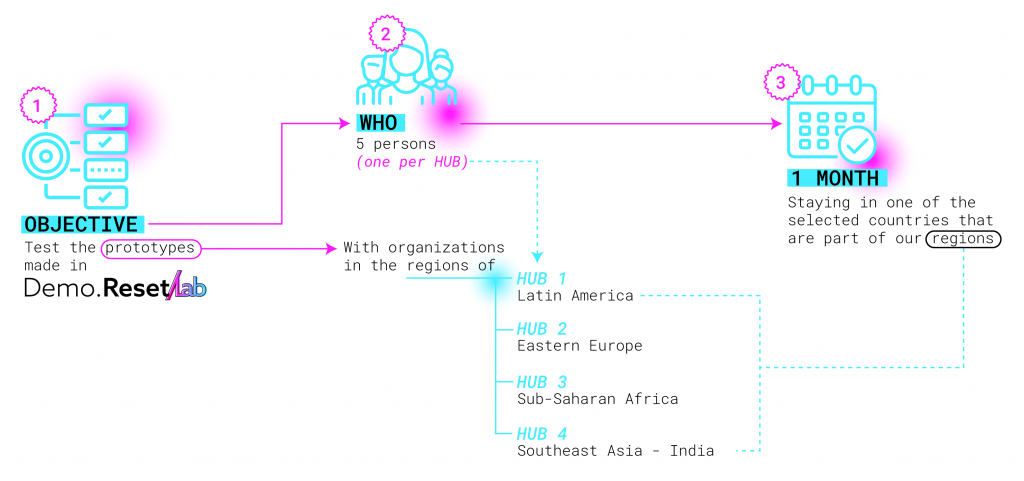
RESULTS
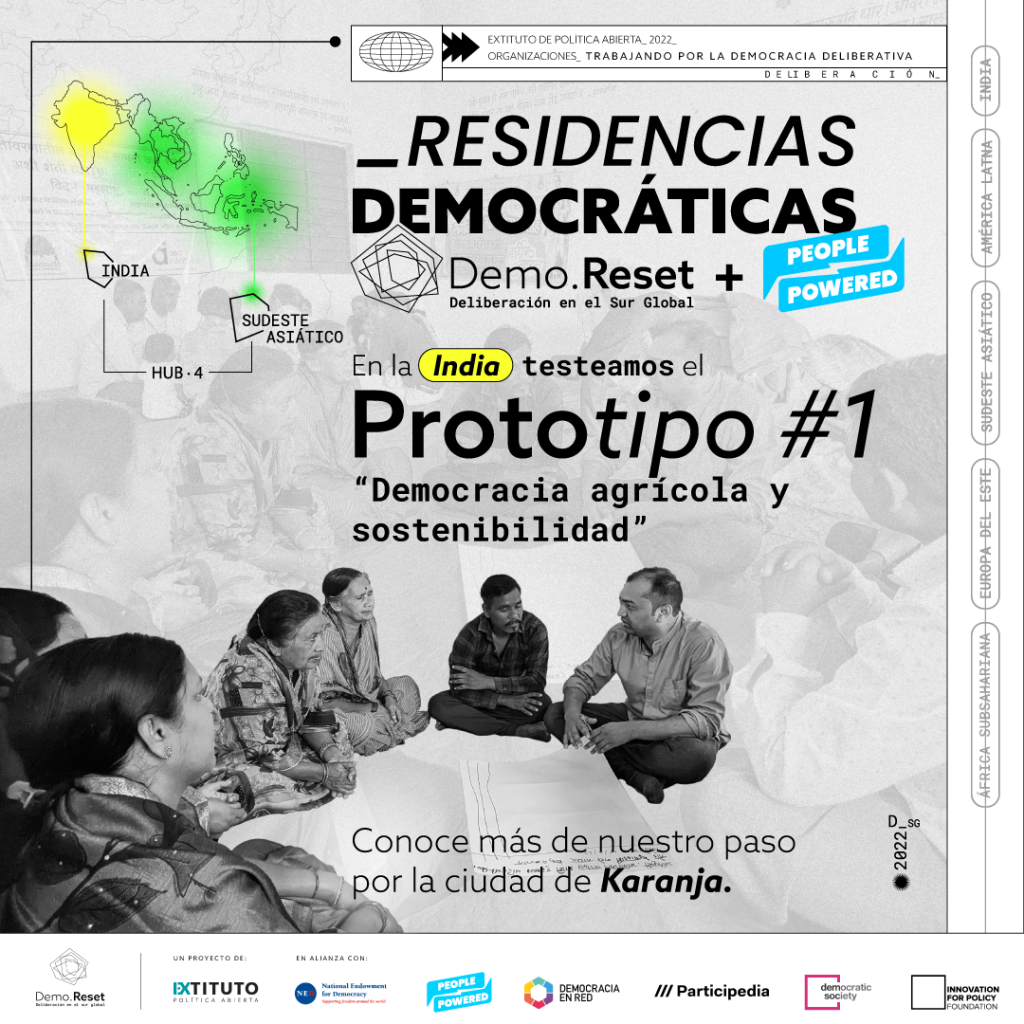
This prototype seeks to bring the peasantry and small landowners engaged in livestock, fishing and agriculture closer to participatory mechanisms.
The workers discuss about creating a citizen assembly capable of making decisions about the development of agriculture and claiming rights.
As a community, they are looking for innovative ways to turn their demands into a matter of public interest.
Residents:
- Danny Goto | Org. Innovations for Development (I4DEV
- Sanskriti Menon | Org. Cee India
- Kunal Jaiswal
Hosts:
- Nilesh Heda | Org. Samvardham Samaj Vikas Sanstha
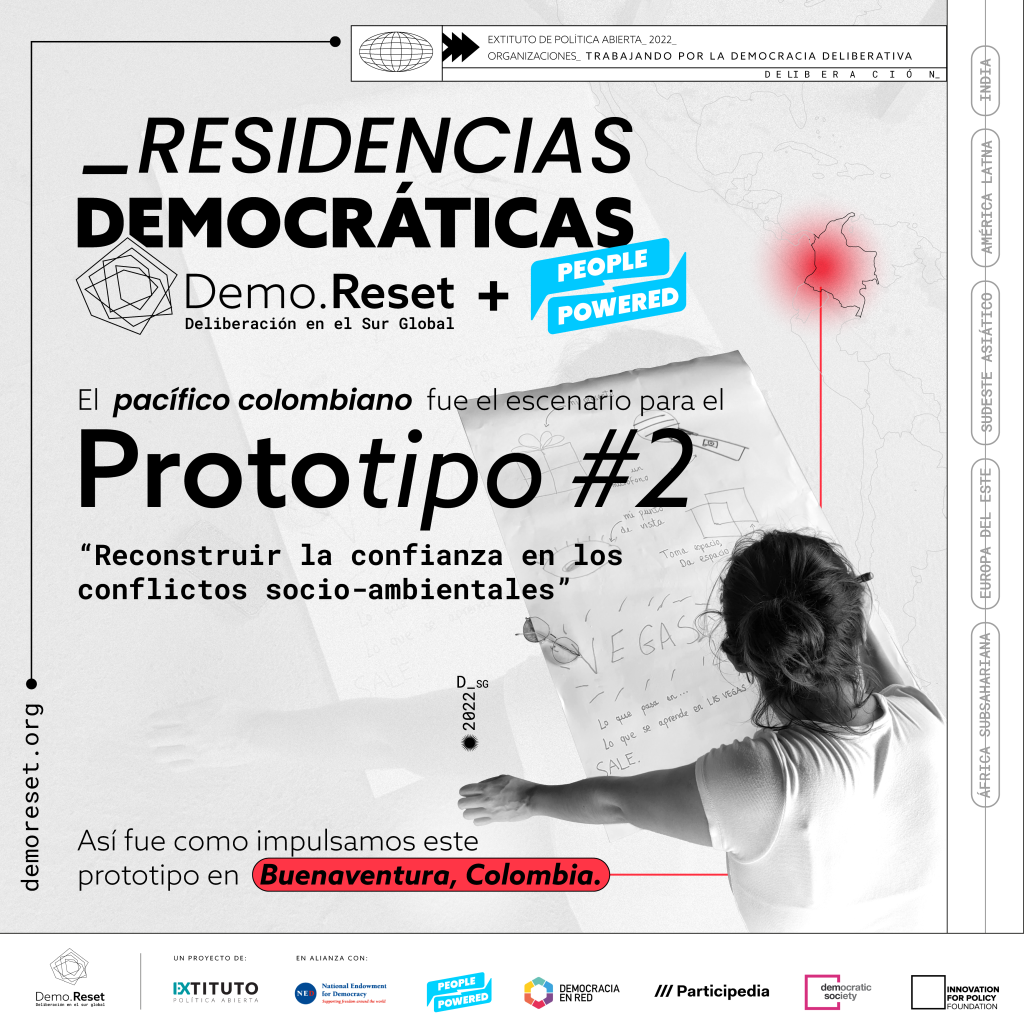
This prototype was born as a response to the challenge of rebuilding trust between communities and decision makers in the midst of socio-environmental conflicts.
We opened spaces for creation and exchange, where we used the Legislative Theater technique. This technique allows us to intervene in a problem by means of acting in different scenes.
We emphasize the importance of influencing, from creativity and innovation, alternative spaces that enable exchange based on individual and collective experiences.
Residents:
- Aluna Serrano
- Kati Rubin
- Fernanda Menin
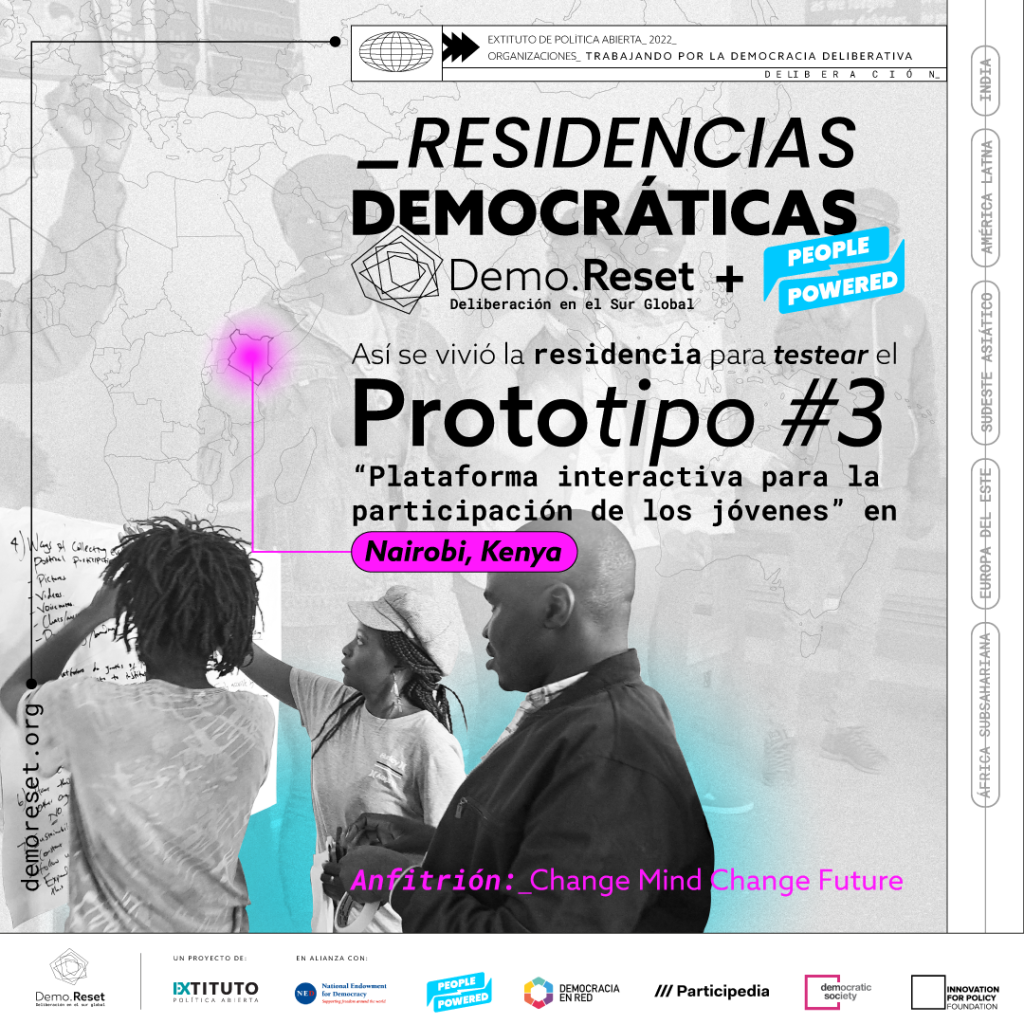
Hosts Frederick Odinga and Obi Jane prepared together with former Demo.Reset General Coordinator Sebastian Calderon a workshop for the youth of Mathare, an informal neighborhood in Nairobi.
In the workshop, group discussions focused on youth participation in democracy. Answering the following questions:
- How do young people express themselves in politics?
- What are the most effective ways to express themselves politically before public institutions?
- What would they like a youth participation platform to have in order to influence democratically?
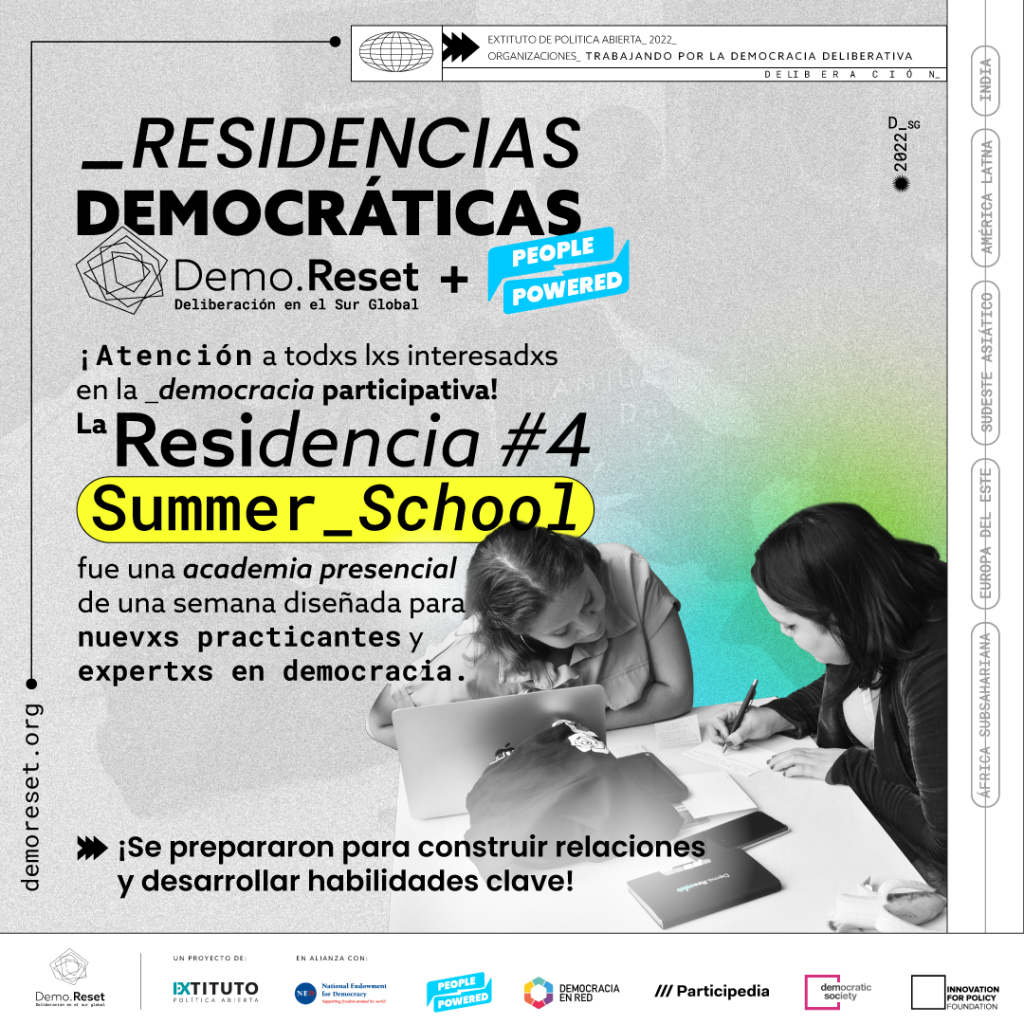
At the Summer School, 27 participants came together to learn, share experiences and explore new ways to strengthen the capacity of local governments and NGOs to design, implement and evaluate democratic innovations.
Participants prepared to become trainers in their own settings.
Collaborations were now established with organizations and government agencies in their own contexts to enhance existing participatory democracy initiatives and develop new ones.
Residents:
- Daniel Schugurensky | Arizona State University
- Dú Pente | JNP Juventude Negra Política
Hosts:
- Patricia Santamaria | Ollin A.C.
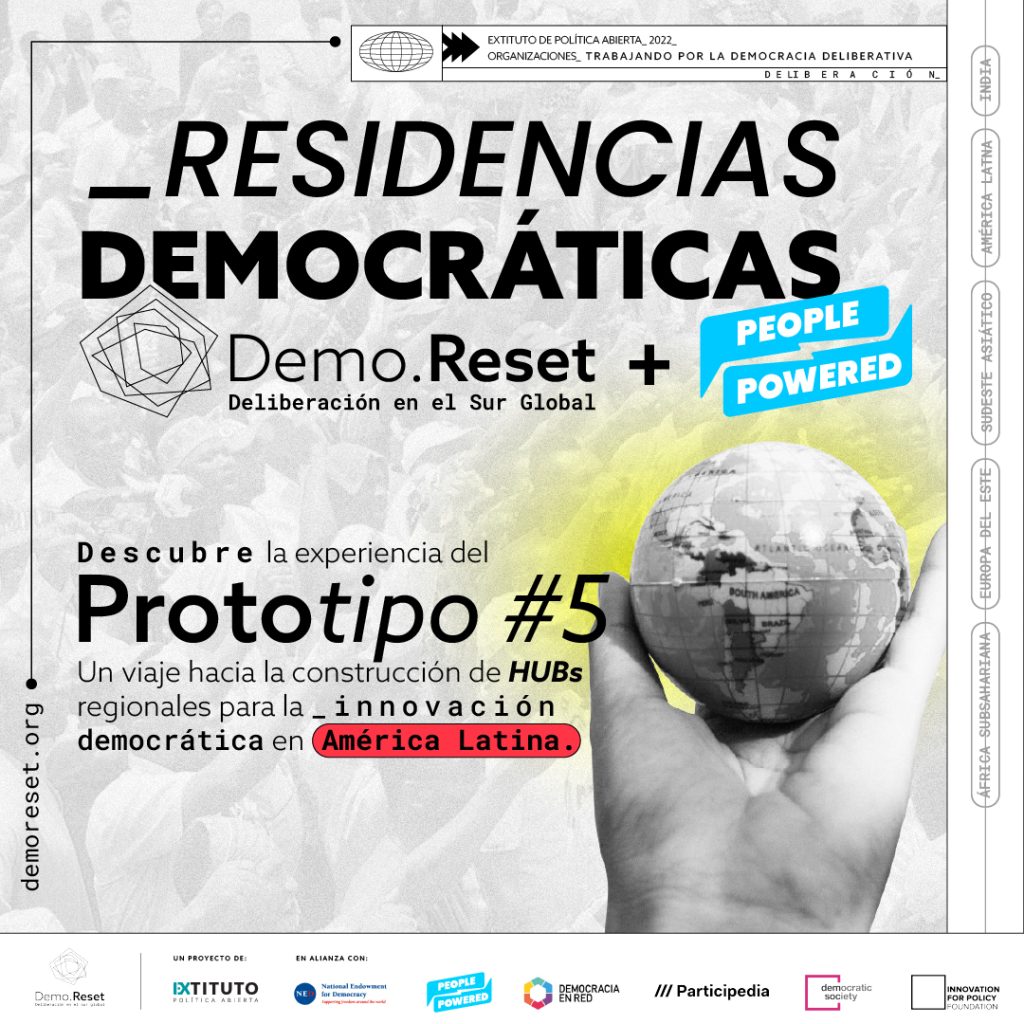
- 96 organizations were mapped in the GLOBAL SOUTH of Latin America.
- 5 key interviews were conducted to understand their networking and the issues addressed.
- Difficulties were identified in the collaborative networks, such as lack of financial and technical capacity.
Residents:
- Sofía Castillo | Sur Institute
- Viviana Villa | Extituto de Política Abierta
- Karla Luna | Ollin Org
Hosts:
- Fiorella Wernicke | Asuntos del Sur
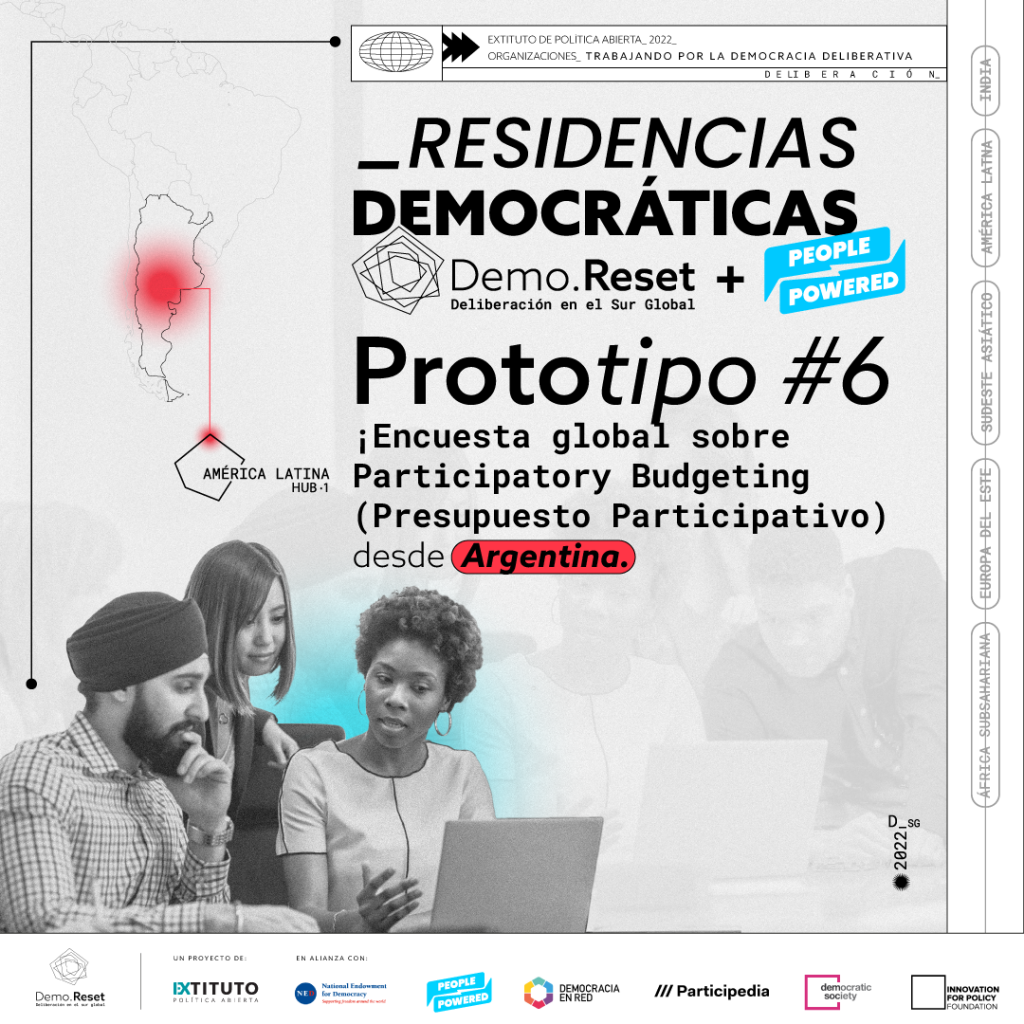
- They contribute ideas.
- They transform them into proposals.
- They vote to decide which proposals to fund.
Objective:
To get a systematic and representative view of experiences in different continents and socio-economic contexts.
The survey will become a regular product of People Powered, completely free of charge! Designed to be accessible to all.
Residents:
- Rocío Annunziata | Instituto de Investigaciones Políticas Universidad Nacional de San Martín
- Alberto Ford | Universidad Nacional de Rosario
Hosts:
- Patricia Mariel Sorribas
- Nuestro Córdoba



 Let’s shape the future of democracy together!
Let’s shape the future of democracy together!